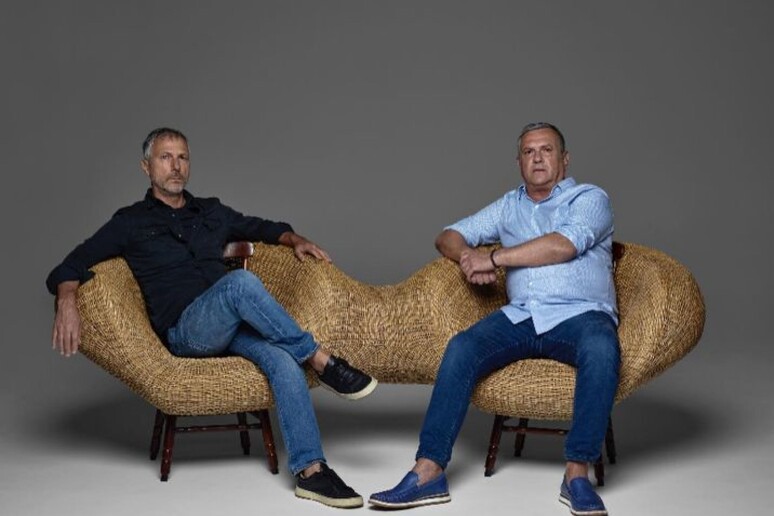The history and work of the Campana brothers, Humberto and Fermamdo, Brazilians of Italian origin who revolutionised the international design scene, were the focus of Design Day 2025 organised by the Italian Embassy and the Italian Cultural Institute in Budapest. In the Federico Fellini cinema hall in the premises of the Italian Cultural Institute, the documentary dedicated to them 'We the Others' by Francesca Molteni and Maria Cristina Didero was screened.
From an Italian family (their parents were from Ferrara and Lucca), in 1983 the Campana brothers started making furniture from common materials using the idea of recycling. Having grown up in São Paulo, they drew inspiration from their homeland. Their interest in searching for innovative materials, their attention to the objects that surround us every day, as well as the theme of consumerism and excess, have been the leitmotif of their work.
These can be found, for example, in the Favela chair, made of a Brazilian wood found in and around Rio de Janeiro's favelas. The way in which the stacked pieces of wood form the seat traces in a fascinating way how favelas are composed of small, stacked communities. Another significant example is the Sushi series, whose upholstery is composed of remnants and scraps of rolled up carpeting. One of the most interesting creations by this duo is certainly the Banquete Chair, a limited edition chair covered in plush. The results of the two brothers' creativity have been received in the biggest museums, from the MoMA in New York in '98, to the Centre George Pompidou in Paris.
ALL RIGHTS RESERVED © Copyright ANSA











